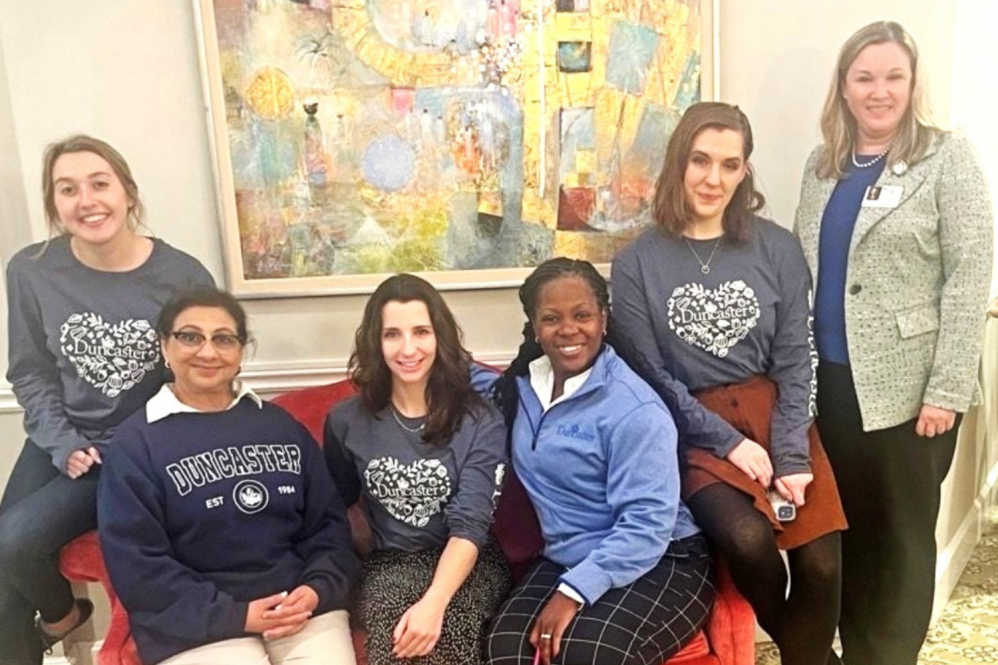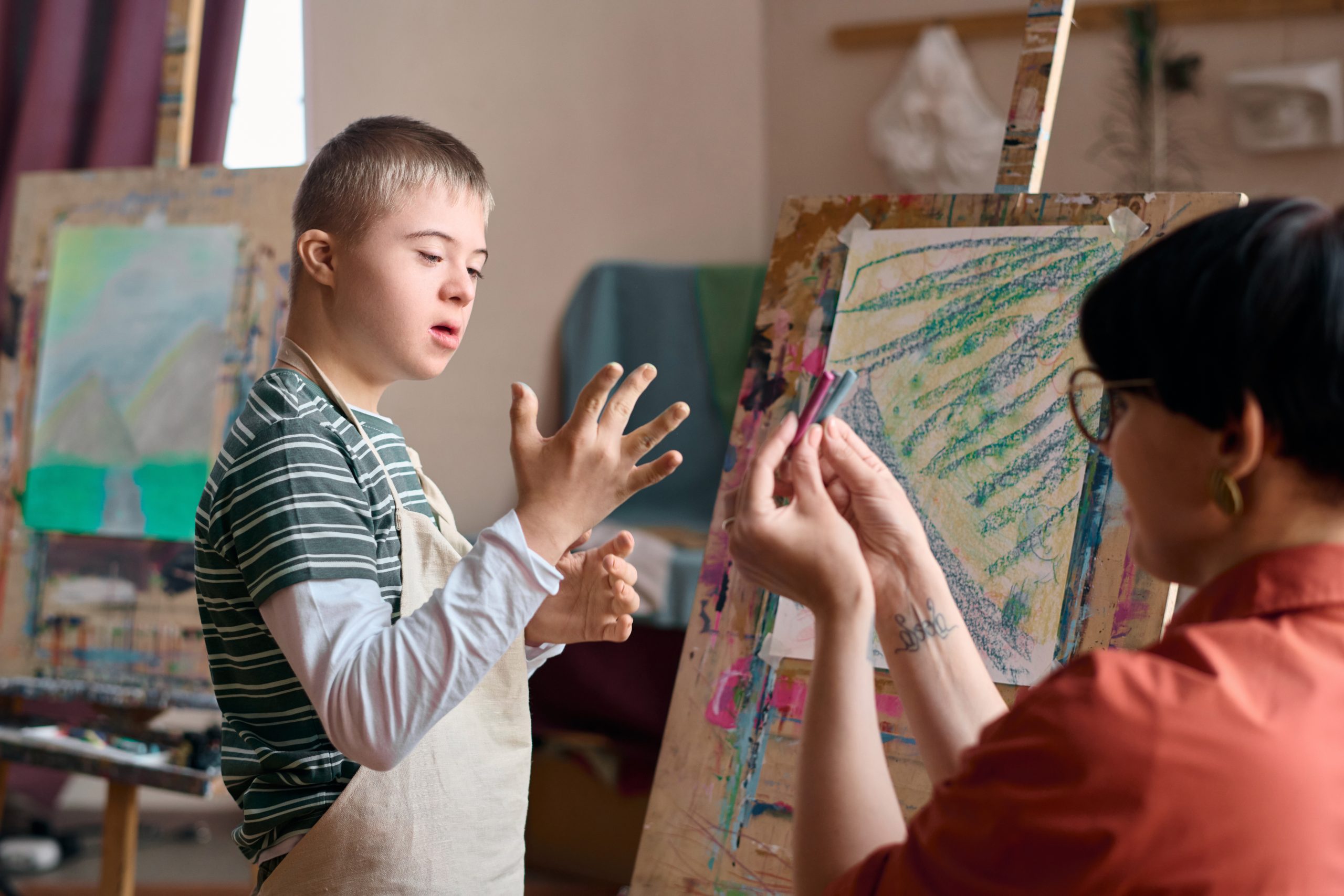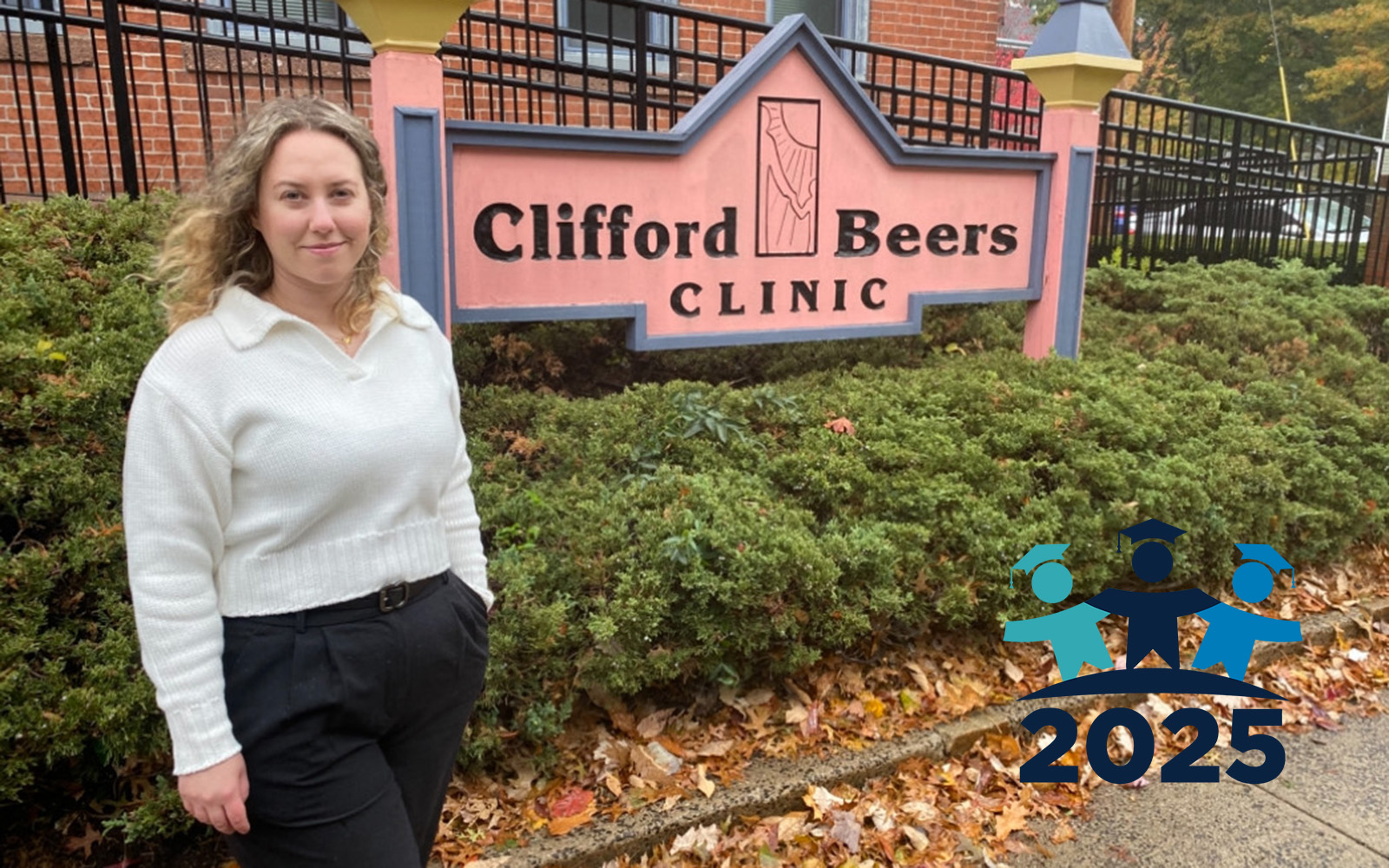Victoria “Tia” Kozar, a fourth-year medical student at the University of Connecticut School of Medicine found her biggest inspiration in the field of Geriatric Psychiatry during her undergraduate education at Quinnipiac University when she participated in the first Quinnipiac Students-In-Residence Program. She resided at a Masonicare assisted living community and it was her neighbor and friend Beth who began exhibiting signs of cognitive lapse and was later diagnosed with Alzheimer’s disease that drove Kozar’s passion for this field.
Connecticut is a quickly aging state and the Center on Aging at UConn Health is at the epicenter of important outcomes for older adults. It is estimated that most physicians spend more than half of their time providing care for older individuals. In addition, there is an expanding body of knowledge specific to the care of older patients.
By engaging in community-based learning experiences, medical students have the opportunity to interact with older adults in a real-world setting, learn about their needs and experiences, and develop empathy and understanding toward them.
When speaking with older adults in the community Kozar all too often had the conversation that included statements such as “I wished my doctor listened more,” “I feel like I don’t have a voice in my care,” “there are so many things that I wished they knew.” Kozar knew this was a conversation that had to happen on a larger scale, and she wanted to develop a program and experience where the dialogue could go both ways.
The UConn School of Medicine is teaching all students how to care for an aging population and the leadership at both UConn Health and Duncaster Independent Life Care Community were on board for this immersive experience and eager to have students participate in the program Kozar spent two years creating.
“Duncaster is proud to partner with UConn School of Medicine to offer this learning experience to students,” says Kelly Papa, President and CEO of Duncaster.
Audrey Grotheer and Emma Carlson, both second year medical students at the University of Connecticut School of Medicine were chosen as the pioneers of this pilot program through an application process. They spent three days at Duncaster’s facility in Bloomfield, Connecticut. A curriculum complemented their stay included dementia, spectrum of senior care and the variety of roles they could have in the care of older adults. The program was experiential, and the students participated in activities and meals with the residents.
Grotheer, is still exploring which area of medicine she will study and describes the experience as the “most amazing sleep away camp you would ever experience.” Having lost all her grandparents she thinks of them often and has happy memories but regrets that they passed before she grew up enough to ask them about them. Growing in this awareness that people have interesting stories to share about their life, she thought this would be a great program to participate in.
In her weekly clinical rotation at a local cardiac center, many of the patients are older and she appreciated that the program would assist her in learning skills to interact with older adults. The patients come with life stories that really contribute to their care and the relationship that they form with their providers.
Carlson is from Montana and after earning her undergraduate degree from Colorado College, she took two gap years in England and DC to decided what she wanted to do with a MD/Ph.D. degree she was planning on pursuing. She wanted to come to a place that would emphasize the patient as much as the science itself and she found that at UConn.
Her plan is to obtain her MD in infectious disease and a Ph.D. in immunology and knows that in her field she will see many older adults and this program helped her with how to apply judgment to help patients in different stages of their health longevity.
Papa has a post it above her desk that says, “by 2027 Aging services will be a career destination for graduating professionals.” She wrote this in 2017, with that goal that in CT we would embrace the vision that students saw working with older adults as a rewarding career path, rather than finding it as an unexpected path.
“Geriatrics is not part of a silo, it’s important to have that experience and be invested in a population that is getting older and getting older fast and to arm our future doctors with the tools to care for older adults,” says Kozar.
While at Duncaster, Grotheer and Carlson stayed in their own separate suite, and both admit that it was not what they expected. They had a luncheon with residents and had structured groups to have conversations about health care. They went to a few meetings and attended a very active residents’ association monthly meeting,
They were able to experience how each area operated in the full continuum of care at Duncaster’s independent life plan community, including independent living facility, assisted living, skilled nursing care and the memory unit.
“This whole experience demystified the care of older adults, a lot of what I have seen through life experiences and media is the downsides of aging, the difficulties and complications of dealing with older adults,” says Grotheer. “I saw happy aging, being in an environment that was engaging and active.”
Carlson met a retired physician who acknowledged the gap in health care and encouraged her to make change and speak more into policy. He also told her to be aware of patients and their circumstances and give more when you can.
As part of the curriculum, the students kept journals and also participated in a Dementia Friends seminar. They went away with certificate of a Dementia Friend. They will go into their clinical rotations with these experiences and certifications preparing them to be the best clinical student.
“Almost immediately after experience ended several of the residents at Duncaster reached out asking for the students contact information to stay in touch,” says Kozar. “They had such a lovely time chatting with them and getting to know them and that they wanted to keep that open as friendships blossomed.
Both Grotheer and Carlson would highly recommend that other students participate in this opportunity. It helps them counsel patients better and be well informed to give advice that is feasible for the people they are taking care of. While they both recognize that Duncaster is not what all aging care facilities look like, they would like to see the program expand and there to be a longitudinal mentorship that includes visiting a variety of facilities to see differences.
Kozar, who will graduate from medical school in May and will start her fellowship at Yale Psychiatry, hopes to continue to grow and expand on these programs to provide more training and experience in the care of older adults.
“As a Registered Nurse, now CEO, I am grateful my career path led me on an unexpected journey to aging services where I found a very rewarding career. If you ask most professionals working with older adults if geriatrics was their career destination as a college student, most say no, something happened, and they found it. But what if students selected it from the beginning? That is why programs like Masonicare’s and Duncaster’s exist. Let’s make working with older adults a career destination,” says Papa.
According to Dr George Kuchel, Director of the UConn Center on Aging and the UConn Older Americans Independence Pepper Center, “In the future, our country will be facing even greater challenges when it comes to training sufficient numbers of physicians and other health professions in skills needed to provide high quality evidence-based care for older adults. This is especially true when it comes to mental health issues. With that in mind, I am delighted to see such interest amongst our next generation of physicians. Having served on the Board of Directors at Duncaster for many years, I could not think of a better place for our medical students to go through this type of life changing experience.”



